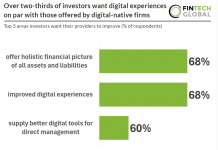It is no secret the economic situation is in a bit of turmoil. People face a cost-of-living crisis and having just recovered from the impact of the pandemic, businesses are once again preparing for a tough market where survival is a priority. SME lending is their saviour.
SME Finance CEO and co-founder Mindaugas Mikalajūnas spoke to FinTech Global about the role of SME lending during their market downturn. He stated that business confidence is currently falling, which has been fuelled by the drop in consumer purchase power and looming fears of a recession. Additionally, interest rates are rising, which brings an end to a time where money could be borrowed for close to nothing.
He added that as inflationary pressures are driven out of the system, there is potential for a reduction in interest rates, coming as early as late 2023 or early 2024. However, an inflationary environment has not existed in most economies for many years, and it will be difficult to adapt.
In order to survive over the coming years, Mikalajūnas offered some advice. He said, “The first priority for small and medium-sized businesses should be to assess their financial strengths (for example, is income growing?), and weaknesses (is there a lack of working capital?). Being realistic is vital, bearing in mind that things could get even worse. So consider what you can do if income drops by 20% or even 50%. Analyse all the possible scenarios and have several plans: a, b and c.”
One of these plans might include getting financing, but as the market gets tougher and business is riskier, it will be harder to access credit. To be prepared, firms will need to know whether their business is eligible for financing, what options there are, including state funding programs, and where help can be found. One key option for help will be alternative financing consultants, who can provide answers and set up a plan to get the financial support, Mikalajūnas stated.
Not all businesses will be equally at risk and some may thrive. However, small and medium-sized businesses will be the most at risk and should be well prepared. They need to ensure they have planned and can ensure there is adequate liquidity for any emergencies.
Seeking support for loans
Small businesses make up the lion share of companies. According to the UK government, there were 5.5 million registered small businesses in the UK at the start of 2021. Most of these are worried about the current climate. A recent survey from Barclays found that three-quarters of SMEs are worried about the long-term impact of the cost-of-living crisis and rising inflation will have on their business.
With this fear, many will be looking towards financing as a pillar of support. Unfortunately, Mikalajūnas believes that in the face of a recession and rising inflation, traditional banks and credit unions will lower their risk appetite. This will leave many of those SMEs unable to access funds from a traditional player.
“SMEs’ demand for liquidity (working capital) is only going to grow as conditions tighten, so they will naturally turn to alternative financiers and FinTech companies.” Mikalajūnas added that many of these small businesses will be well used to alternative financiers. Many small businesses do not have enough collateral to get a loan from a traditional lender. Whereas, alternative financiers have the tools to accept more risks, such as access to the European Investment Fund.
Enter SME lending
Mikalajūnas stated that specialist SME lenders can offer more flexible conditions and are more capable with risk evaluations and as a result, more willing to lend to SMEs. One of the reasons SME lenders are better placed at helping smaller companies is because they are using real-time data, algorithms and AI-based techniques.
“Thanks to all these tools, they can evaluate the creditworthiness of SMEs faster and more accurately,” Mikalajūnas added. “What’s more, alternative financiers are better at developing unique processes to be as close as possible to the client. This means creating the simplest possible financing process: digital onboarding, for example, enables any small business to get financing online. There is no need to submit paper documents or go to meetings. The process of obtaining financing is simple and fast.”
Alternative financers also understand smaller companies are at the mercy of time. If a firm receives financing late, it can cause significant financial damage. This means, they often provide same day credit decisions, unlike traditional banks that wait for a weekly credit committee, Mikalajūnas said.
He added, “The focus of traditional banks and large lenders is on low-risk, large customers. The attention given to small businesses and the services offered are very limited. Traditional banks are not flexible and struggle to adapt to the needs of individual customers. The daily routine of SME lenders, on the other hand, is to understand the risks faced by small businesses, to adapt pricing based on this better understanding of risk, and to come up with innovative credit propositions. Thus, alternative financiers are much more flexible in their assessment of each client.”
Why seek credit during a recession/dip rather than cut costs
As mentioned, many firms will be looking to prioritise business survival. There are several routes to go with doing this, but the two easiest ways are to get a loan or cut costs. Each side has its pros and cons and so there is no correct answer.
However, Mikalajūnas warned that scaling back risks losing competitive advantage. “If a business tries to reduce costs instead of getting financing for working capital, there is a possibility that production volume and/or productivity will be reduced. If this happens, sales are likely to be taken over by a competitor prepared to take more risks.”
This risk is similar to failing to invest into technology and automation. If the technology is left and not updated or expanded, production capacity and productivity can drop. Firms can also lose their competitive advantage the technology brought.
Both of these result in a company falling behind competitors and means they will struggle to catchup when the dip ends.
“There is no need to suffer unnecessarily and downsize painfully in order to survive the crisis. The most important goal should be to stay in the market and remain competitive – at any cost. It is important to understand that every crisis brings with it new opportunities that must be exploited. Therefore, I am convinced that a business that looks for opportunities, not just ways of saving or scaling back, is more likely to survive and thrive.”
Mikalajūnas stated that if a firm can make profitable sales by taking on debt from SME lending, then that is the best option, as they will have funds to pay off the loan. However, not all companies will have this luxury. So, if the sales will not be enough to operate profitably, then it is best to cut costs.
Mikalajūnas offered some advice to SMEs for the coming year. He said, “Have a liquidity buffer to enable targeted investments which can increase your long term competitive advantage. Work on plans A, B and C, and carry out a stress test that looks at things like ways to quickly reduce volume, and diversify supply and sales. The most important thing is to plan more, because business as usual during this period of uncertainty will not end well.”
How SME Finance helps
SME Finance is an AI-driven financing platform that offers accurate, unprejudiced decisions within an hour. Established in Lithuania in 2016, the company has supplied over €1bn in working capital to more than 2,000 businesses across Europe.
The company has helped several companies over the years. An example of this was helping to finance the installation of the Cable313 wakeboarding park in Palanga (a Lithuanian resort town on the Baltic Sea).
It is constantly monitoring the market so that it understands the challenges that are faced by SMEs. The goal of SME Finance is to not only become the most innovative financer, but also create complementary solutions. Examples of these are revenue-based financing and its new smart loan solution. The smart loan service is aimed at small businesses with a permanent or growing income. It uses AI to assess how much a firm can borrow, but if the company repays their loan and shows their turnover is growing, they can apply for a greater amount.
Mikalajūnas added that one of SME Finance’s values is to offer flexible terms to customers. “We strive to be accessible to any business.” If a company can generate some income, it can get financing. While some companies might turn them away, SME Finance believes communication is all that is needed to help businesses with the smallest incomes or facing troubled times. “A business that has problems but is prepared to be open about it will get payment holidays and delayed schedules. But a business that prefers to hide difficulties and won’t talk about what is really going on will unfortunately find it difficult to obtain the flexibility it needs to recover.”
Mikalajūnas concluded, “Although difficult times are inevitable ahead and will affect every sector, I am confident that SME Finance will continue to grow. We are focused on creating new, low-risk products and improving existing ones. We constantly invest in technology, and will soon be offering even more innovative solutions for small and medium-sized businesses.
“And I would like every business owner to be unafraid and look for new opportunities. Every crisis brings opportunities. It is important to recognise them in time to take advantage of them!”
Copyright © 2022 FinTech Global











